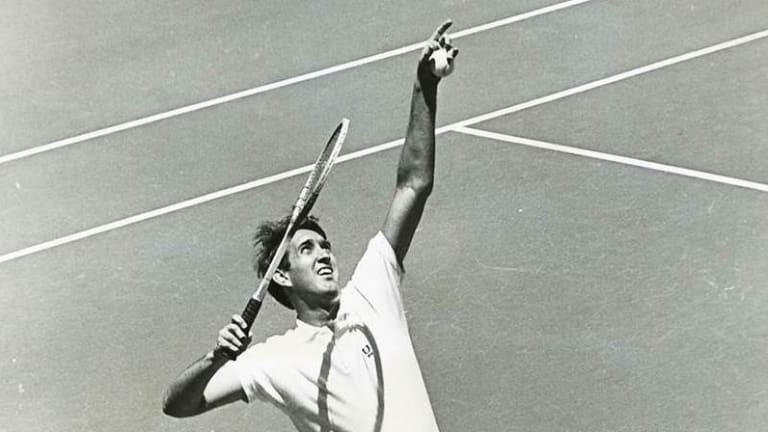PODCAST: Donald Dell continues a decades-long push for tennis progress
By Jun 16, 2020Top 5 List
After Ruud’s win in Madrid, who are the new best men’s tennis players seeking their first "big" title?
By May 09, 2025Betting Central
Rome Betting Preview: Luciano Darderi vs. Jack Draper
By May 09, 2025Rome, Italy
Carlos Alcaraz returns in Rome, Coco Gauff vs. Victoria Mboko | Where to Watch, Live Stream Links
By May 08, 2025Second Serve
Eva Lys is ready for her tennis close-up
By May 08, 2025Lifestyle
New American pope Leo XIV is "quite the amateur tennis player"
By May 08, 2025Social
Quote of the Day: Iga Swiatek tries to protect her privacy in Rome
By May 08, 2025Pop Culture
Carlos Alcaraz opens up about Juan Carlos Ferrero scene in Netflix documentary
By May 08, 2025Opinion
The Boom in the Boot: How Italian tennis continues to rise
By May 08, 2025Rome, Italy
'Risky' tactician Fabian Marozsan challenges Joao Fonseca's forehand in opening Rome win
By May 08, 2025PODCAST: Donald Dell continues a decades-long push for tennis progress
Watch (or listen to) the sport's first agent, who has a wealth of insight on how far the sport has come, and how much farther it has to go.
Published Jun 16, 2020
Advertising
Advertising

PODCAST: Donald Dell continues a decades-long push for tennis progress
Advertising

PODCAST: Donald Dell continues a decades-long push for tennis progress